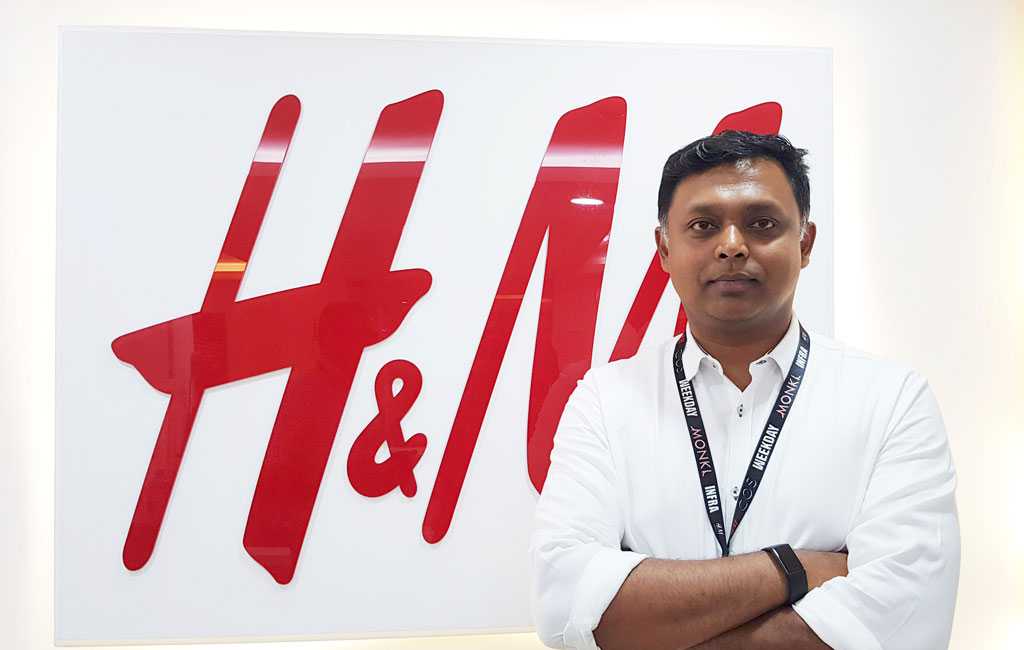‘Bangladesh will still be an important production industry for H&M’

Image collected
“Our garment suppliers and their workers are extremely vulnerable amid the difficult Covid-19 pandemic problem. H&M highly values the relationship with its suppliers and it is more significant than ever to stand by commitments, getting transparent, and having responsible getting procedures,” Ziaur Rahman, country manager of Swedish retail huge H&M for Bangladesh, Pakistan, and Ethiopia, told Dhaka Tribune’s Ibrahim Hossain Ovi in an interview.
Amid the Covid-19 pandemic, how may be the apparel industry navigating through troubled waters?
Covid-19 continues to impact people, communities, and companies around the world. H&M Group is definitely working extensively across organization functions to manage the circumstances in the perfect way. While the total implications of Covid-19 are but to become experienced, we will tackle issues today and, in potential, together with our organization partners and other market stakeholders. We all rely upon having a viable and sustainable textile sector going forward.
By 2040, H&M intends to be climate confident. What will it mean for Bangladesh?
We want to continue steadily to lead manner retail towards a far more sustainable upcoming. We will continue our long-term sustainability do the job, and retain our goals and commitments. The H&M group’s sustainability vision is usually to be a respected force in the changeover to circular, climate-positive vogue as a good and equal company.
We continue to increase value for our buyers through our sustainability do the job, such as for example our goal for 2020 of only purchasing recycled and sustainably sourced cotton, and we are acquiring steps towards our objective of 100% of our materials appearing either recycled or perhaps sourced in a far more sustainable way by 2030.
Our efforts linked to sustainability will donate to strengthening our situation and make sure the long-term positive production of H&M Group.
What is the near future route, which would redefine Bangladesh attire industry in a-post pandemic world?
Bangladesh will continue to be a crucial production market for all of us. We have been operating in the country for a lot more than 27 years. We are working closely with this suppliers and developing as well as them. For the country’s textile sector to become even more competitive, we see a need for a larger focus on, for example, increased merchandise diversification and product expansion.
2020/07/furniture0-ib-770-x-90-dt-1595561802048.gif
How do we empower the outfits supply chain?
As always, collaboration with other market stakeholders may be the key, and we'll continue steadily to work closely together with others. We have accordingly joined the UN physique ILO, the foreign unions ITUC and IndustriALL, International Firm of Employers (IOE) and different brands, in a proactive approach to jointly tackle the instant and long-term ramifications of Covid-19 and continue steadily to work towards a far more resilient garment industry.
There will be an assessment of how to mobilize funds locally in initiatives to counter the consequences of the Covid-19 crisis on persons and jobs in countries where systems of social protection are weak.
What exactly are some sustainable alternatives towards labour anxieties regarding losing jobs, where clients and makers both may contribute?
We of course understand that our garment making suppliers, and their employees, are extremely vulnerable in this difficult circumstances. We extremely value the relationship with this suppliers - they will be our partners - and today, in this difficult condition, it’s more significant than ever to stand by commitments, getting transparent, and having responsible purchasing practices.
You want to help suppliers and garment staff, and ensure the future viability of the sector once the crisis has passed.
The world is going through the Covid-19 pandemic. How do fashion move forward?
Just just as under normal circumstances, we fully the stand by position our liable purchasing practices and contractual agreements. We take delivery of and purchase already produced goods, along with goods in production, if delivered within an acceptable timeframe. We are fulfilling all payments for provided goods, at the originally agreed price and on time.
Source: https://www.dhakatribune.com
Tags :
Previous Story
- Pakistan’s fake-degree problem, India-Bangladesh trade stalemate and much...
- Overseas participants about Indian power exchanges soon
- India lags China found in South Asian trade...
- South Korea to Curb Visas, Flights from Pakistan,...
- The 10 countries where the most jobs be...
- US sells first bulk scrap cargo to Pakistan...
- U.S. soybean industry hopes to double exports to...
- Economic growth robust despite challenges